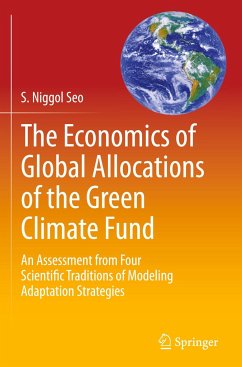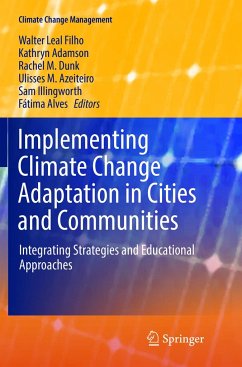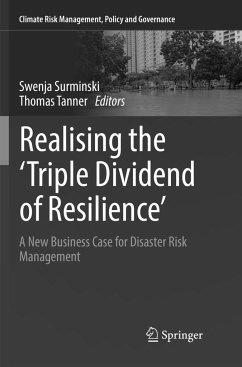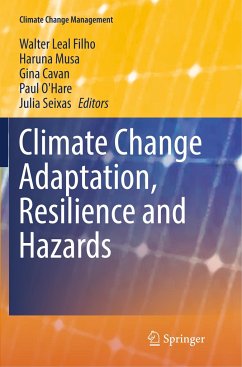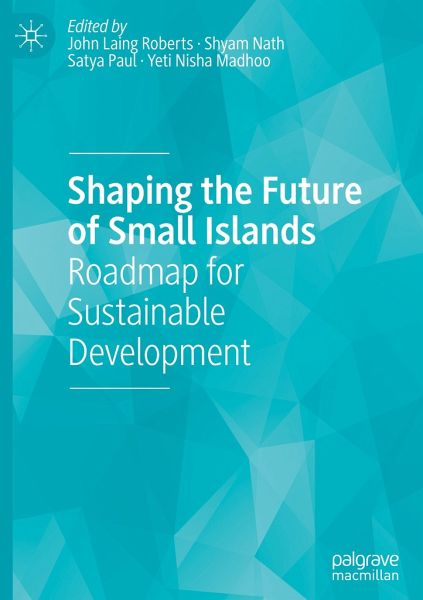
Shaping the Future of Small Islands
Roadmap for Sustainable Development
Herausgegeben: Roberts, John Laing; Nath, Shyam; Paul, Satya; Madhoo, Yeti Nisha

PAYBACK Punkte
38 °P sammeln!
The book provides fresh look at the issues of sustainable development, degradation of natural resources and vulnerability to climate change in Small Island developing states (SIDS). It documents the deteriorating state of SIDS and adaptation efforts made to address the impending crisis of unsustainable economic growth with international, national and community support.Authors have discussed issues like macroeconomic trends, vulnerability, resilience capability, and SIDS-specific strategies focusing on sectors like trade and tourism. Discussion continues with the examination of democracy, socia...
The book provides fresh look at the issues of sustainable development, degradation of natural resources and vulnerability to climate change in Small Island developing states (SIDS). It documents the deteriorating state of SIDS and adaptation efforts made to address the impending crisis of unsustainable economic growth with international, national and community support.
Authors have discussed issues like macroeconomic trends, vulnerability, resilience capability, and SIDS-specific strategies focusing on sectors like trade and tourism. Discussion continues with the examination of democracy, social capital, quality of life, and health concerns. Climate change and natural resource challenges are analyzed using case studies. The book also discusses diplomatic complexities of international climate agreements, collective action and institutional quality constitute the analysis of global environment and sustainable development.
Authors have discussed issues like macroeconomic trends, vulnerability, resilience capability, and SIDS-specific strategies focusing on sectors like trade and tourism. Discussion continues with the examination of democracy, social capital, quality of life, and health concerns. Climate change and natural resource challenges are analyzed using case studies. The book also discusses diplomatic complexities of international climate agreements, collective action and institutional quality constitute the analysis of global environment and sustainable development.









